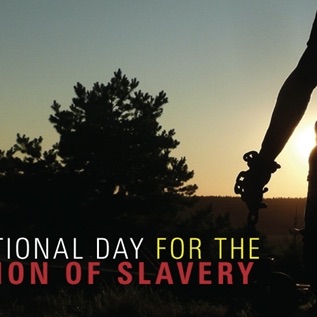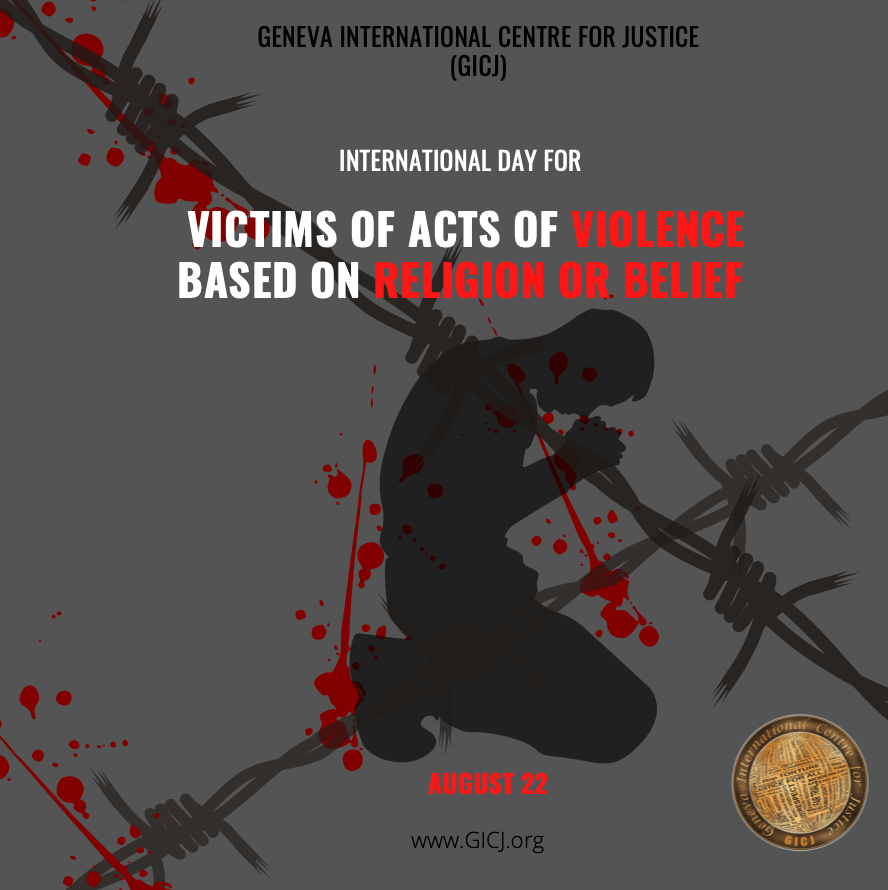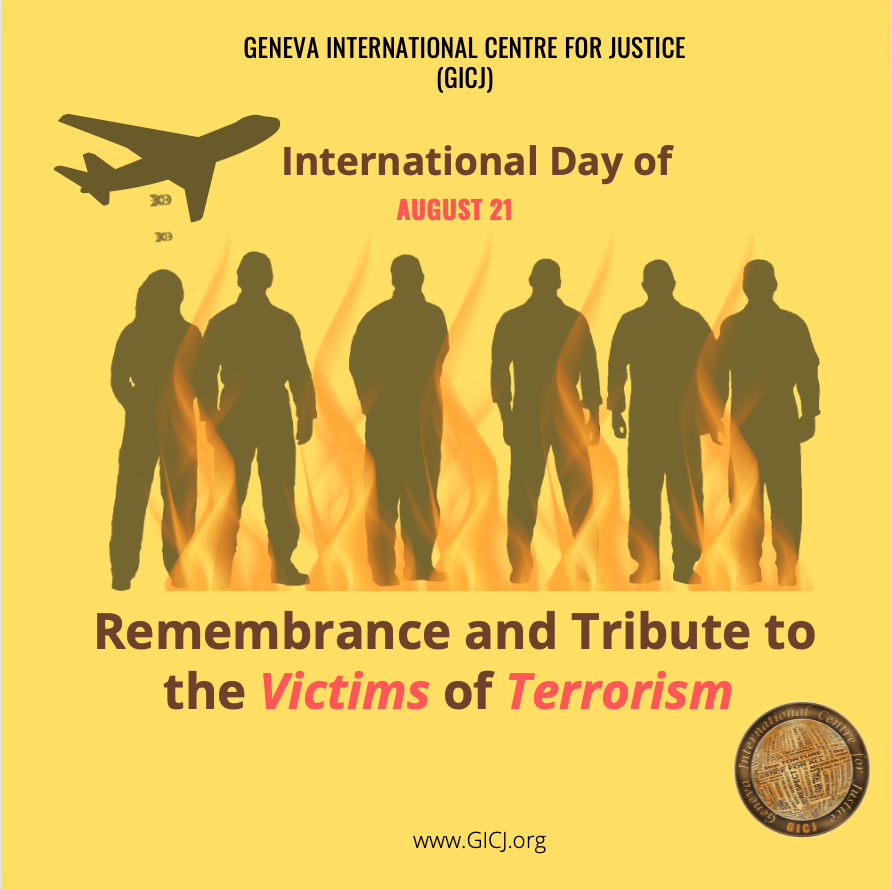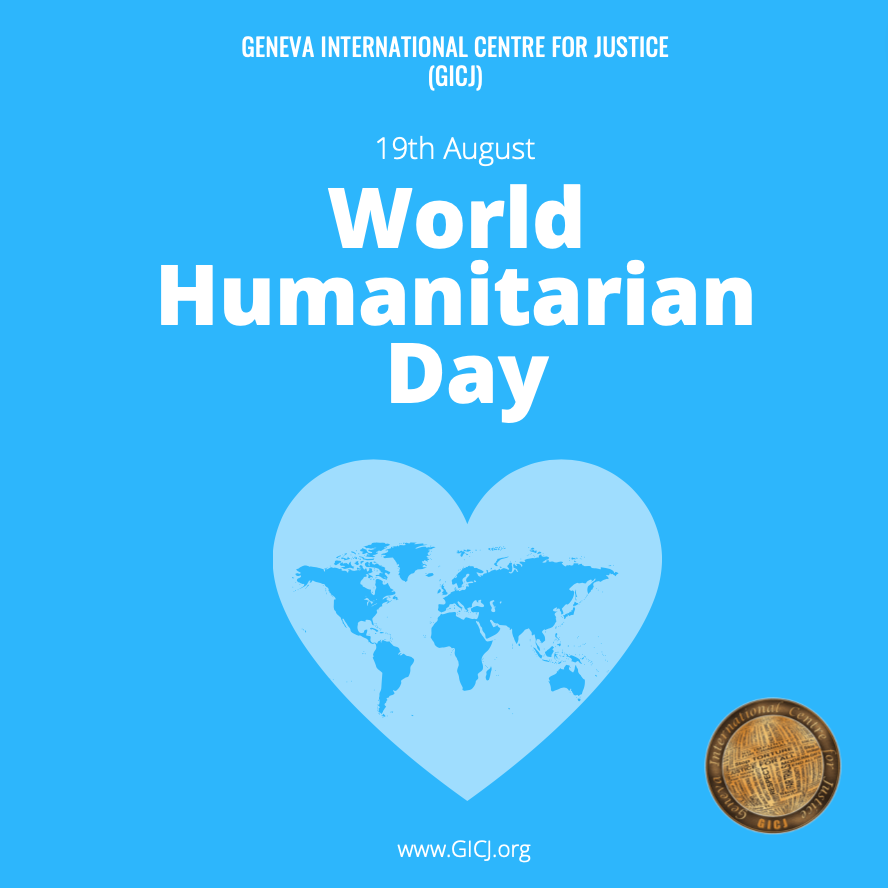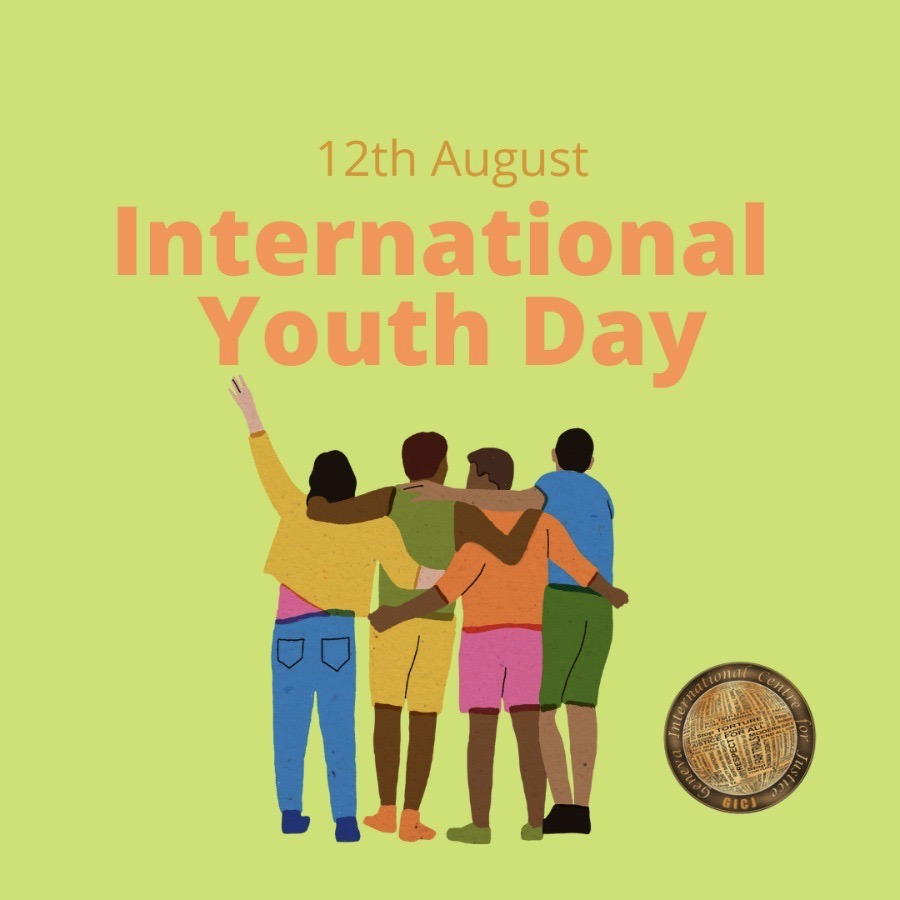By Ardya Syafhana / GICJ
Humanitarian workers don’t have the benefit of choice. They work in conflict zones. They are tasked with countering such threats without arms in conflict-stricken regions to aid vulnerable groups. Hence, celebrating World Humanitarian Day (WHD) is crucial to highlight their plights. Every 19th of August, the international community is reminded of the importance of humanitarian assistance and the dedication of humanitarian workers [1].
Background
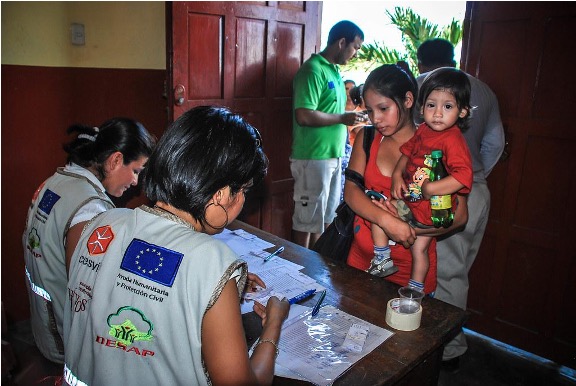 In the aftermath of the Invasion of Iraq in March 2003, the United Nations Assistance Mission for Iraq (UNAMI) was established by the UN Security Council to assist the UN Secretary-General in the mandate of conflict reconciliation and humanitarian affairs coordination within the country [2]. Five days later, the headquarter of UNAMI and other UN-related agencies in Iraq--located in the Canal Hotel--was struck and largely demolished by a suicide bomber driving a truck full of explosives [3]. The attack claimed the life of 22 people, including the former UN High Commissioner for Human Rights, Sergio Vieira de Mello, and Special Representatives for the UN Mission in Iraq. Mr. Vieira de Mello was widely known for his peace-building efforts in the context of Cambodia, Yugoslavia, and East Timor.
In the aftermath of the Invasion of Iraq in March 2003, the United Nations Assistance Mission for Iraq (UNAMI) was established by the UN Security Council to assist the UN Secretary-General in the mandate of conflict reconciliation and humanitarian affairs coordination within the country [2]. Five days later, the headquarter of UNAMI and other UN-related agencies in Iraq--located in the Canal Hotel--was struck and largely demolished by a suicide bomber driving a truck full of explosives [3]. The attack claimed the life of 22 people, including the former UN High Commissioner for Human Rights, Sergio Vieira de Mello, and Special Representatives for the UN Mission in Iraq. Mr. Vieira de Mello was widely known for his peace-building efforts in the context of Cambodia, Yugoslavia, and East Timor.
Nevertheless, the designation of World Humanitarian Day took five years after the grim tragedy. UN General Assembly adopted resolution Number A/Res/63/139 without a vote, highlighting the importance of “public awareness about humanitarian assistance activities worldwide and the importance of international cooperation in this regard, as well as to honour all humanitarian and United Nations and associated personnel who have worked in the promotion of the humanitarian cause and those who have lost their lives in the cause of duty” [4].
To this date, the promotion of world humanitarian day is led by the United Nations Office for the Coordination of Humanitarian Affairs (UNOCHA) and humanitarian partners [5]. This year’s theme is #ItTakesAVillage and is inspired by the same metaphor of “It takes a village to raise a child.” It seeks to raise more awareness of the international community's collective responsibility in humanitarian crises in the world, as well as a homage to aid workers who risk their lives on the front lines of conflict and disaster-ridden countries.
The Current Situation in Iraq
The UN Security Council (UNSC) renewed the mandate of UNAMI until 31 May 2022 to assist the government and people of Iraq in the security, economic, and social sectors [6]. Upon the continued attempt to renew its governmental lineup, the current Iraqi leadership is still far from rebuilding its national security, most notably in the counter-terrorism operations. The tension with its neighbouring states rose after the incident of the 12 attacks of ballistic missiles in Erbil by Iranian forces and the Turkey military operations in northern Iraq [8]. In 2022, UNOCHA estimates there are 2.5 million people who need humanitarian assistance in Iraq, including 991,000 Iraqi internally displaced persons (IDP) and returnees [9].
Armed Conflicts
Aside from Iraq, numerous countries remain in a humanitarian emergency due to armed conflict. Within seven years of war, Yemen is still among the world’s worst humanitarian crises, with 75% of the population depending on humanitarian aid [10]. The Ukrainian conflict is also an example and is considered the largest humanitarian displacement in 2022, resulting in a total of 12 million IDP [11].
In other parts of the world, Afghanistan and Myanmar have been in unprecedented economic and security crises since the military coup. The hostilities between the government forces and opposition groups have exacerbated the pre-existing human rights violations. Under military leadership in Afghanistan, 2106 civilians have become objects of attack [12], and a total of 25 out of 34 provinces have recorded forced displacement [13]. The suffering escalated when a 5.9 magnitude earthquake hit the south-eastern region, increasing the necessity for urgent humanitarian aid [14]. In Myanmar, thousands of civilian deaths and injuries were documented, and IDP across Myanmar reached one million on 30 May 2022 [15]. Nevertheless, the parties involved in hostilities were found to hinder access to humanitarian aid workers.
Since the Canal Hotel Bombing, the casualties of humanitarian workers during the armed conflict have escalated, recording 140 deaths and 203 injuries last year [16]. International Humanitarian Law (IHL) is rigid when it comes to civilian protection. It guarantees rapid and unimpeded access to humanitarian relief for civilians in need [17] and protects personnel involved in aid provision [18]. In particular, the 1949 Geneva Conventions and 1977 Additional Protocols empower the International Red Cross Committee (ICRC) to take the initiative in humanitarian assistance during international and non-international armed conflicts [19]. Furthermore, in the non-existence of armed conflicts, ICRC may offer its services to the countries concerned without intervening in their internal affairs. ICRC has been operating in numerous critical global conflicts, such as those in Afghanistan, Syria, Yemen, and Ukraine [20].
Humanitarian Assistance and Human Rights
In recent years, African and Middle Eastern countries have been most affected by climate and weather-related disasters. However, with the increased risk of widespread famine and mortality, the respected authorities refused to receive aid from humanitarian organisations [21] and UN Agencies [22].
Beyond the context of armed conflict, the denial of access to humanitarian relief by states is a human rights violation. After all, humanitarian assistance encompasses all basic needs people require in cases of emergencies (medicine, food, clothing supplies, and shelter) [23]. When states decide to refuse humanitarian aid and do not receive assistance, the survival of communities is hindered. International Covenant of Economic, Social, and Cultural Rights acknowledges individuals’ rights to an adequate standard of living, including water, food, clothing and housing, as well as adequate and attainable standards of physical and mental health [24]. Even though the obligation is subject to states' available resources, the inability due to the unwillingness of a state to ensure the neglect of these fundamental rights is not justifiable. State Parties still bear the duty to take all necessary measures, including obtaining international assistance to realise those rights progressively and ensure the attainment of minimum essential levels immediately [25].
Geneva International Centre for Justice (GICJ) condemns all forms of violence against humanitarian aid workers. The Canal Hotel Bombing asserted that humanitarian workers deserve protection and shall not be the target of any attacks. As important as civilian protection, humanitarian service is also irreplaceable; if the international community turns a blind eye, civilians might not survive. In line with the theme of the year, it takes the whole “village” to build and restore conflict-ridden and disaster-ridden countries and will certainly require the world to achieve international peace and security.
IHL does give states discretionary power to allow or refuse humanitarian assistance entering their territory. Still, the arbitrary denial, regardless of how beneficial to the military, is against the basic principles of IHL (proportionality and humanity). In non-armed conflict settings, access to humanitarian relief is a fundamental human right and falls under the obligation of states. States must ensure the distribution of essential life-saving supplies to citizens in contexts of local and public/international emergencies.
Iraq, World Humanitarian Day, Humanitarian Affairs, Human Rights, Geneva, geneva4justice, GICJ, GenevaInternationalCentreForJustice
[2] https://digitallibrary.un.org/record/500901
[4] https://daccess-ods.un.org/access.nsf/Get?OpenAgent&DS=A/RES/63/139&Lang=E
[5] https://about.worldhumanitarianday.org/
[6] https://press.un.org/en/2022/sc14906.doc.htm
[7] https://press.un.org/en/2022/sc14892.doc.htm
[9] https://www.unfpa.org/resources/unfpa-response-yemen-situation-report-1-january-march-2022
[10] https://press.un.org/en/2022/sc14951.doc.htm
[12] https://www.humanitarianresponse.info/en/operations/afghanistan/idps
[15] https://www.humanitarianoutcomes.org/figures_at_a_glance_2021
[16] https://ihl-databases.icrc.org/customary-ihl/eng/docs/v1_rul_rule55
[17] https://ihl-databases.icrc.org/customary-ihl/eng/docs/v1_rul_rule31
[18] https://www.icrc.org/en/mandate-and-mission
[19] https://www.icrc.org/en/where-we-work
[21] https://press.un.org/en/2021/sgsm20954.doc.htm
[22] https://www.icj-cij.org/public/files/case-related/70/070-19860627-JUD-01-00-EN.pdf
[24] https://www.refworld.org/docid/4538838e10.html
Image Source: (Flickr) https://www.flickr.com/photos/eu_echo/8269886249
Day of Remembrance Articles by GICJ:




